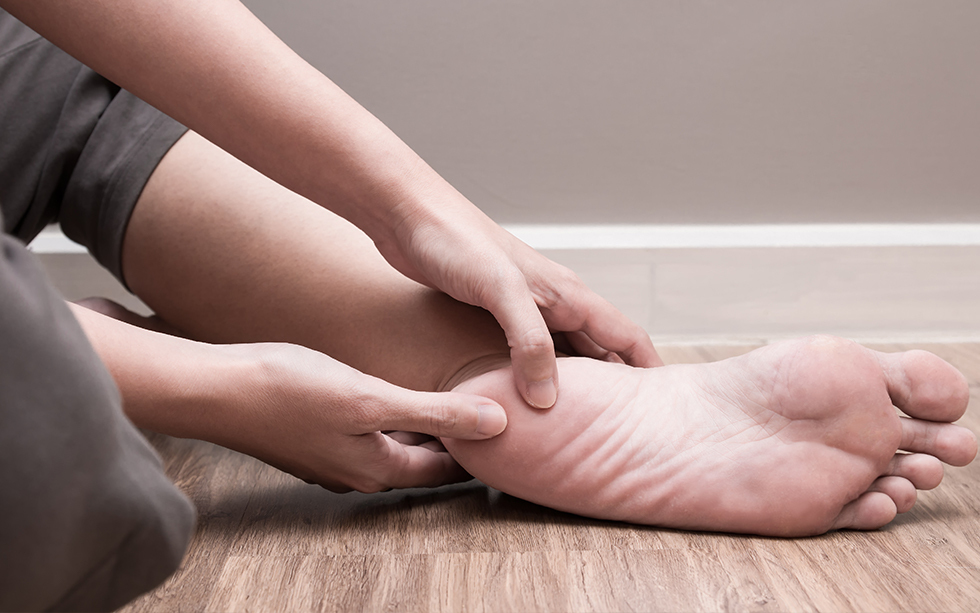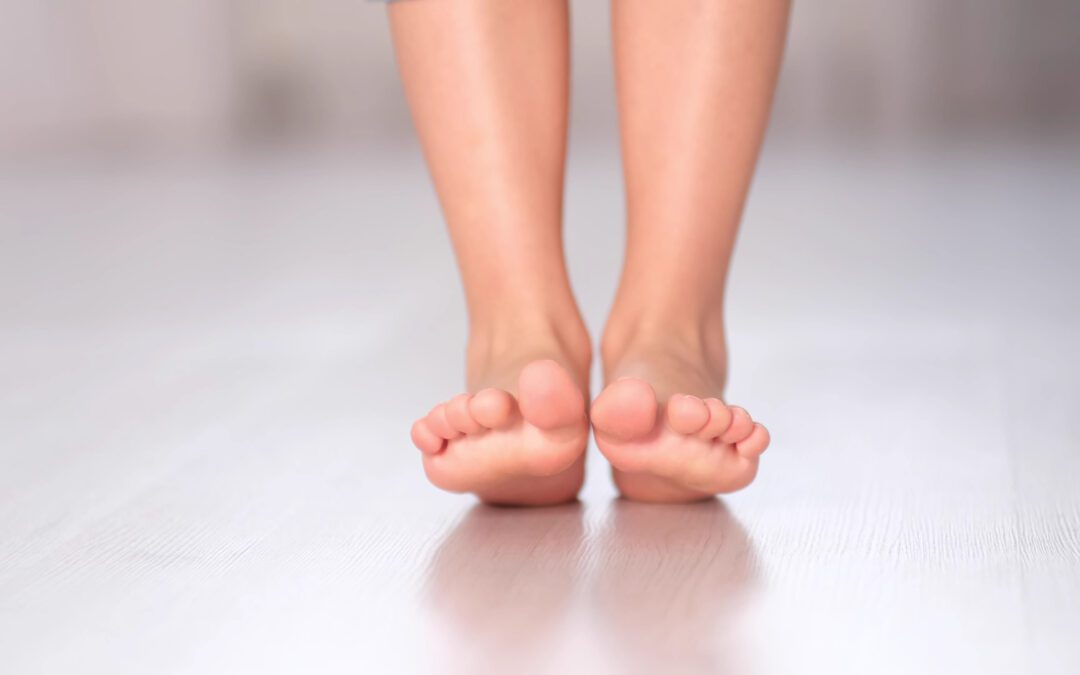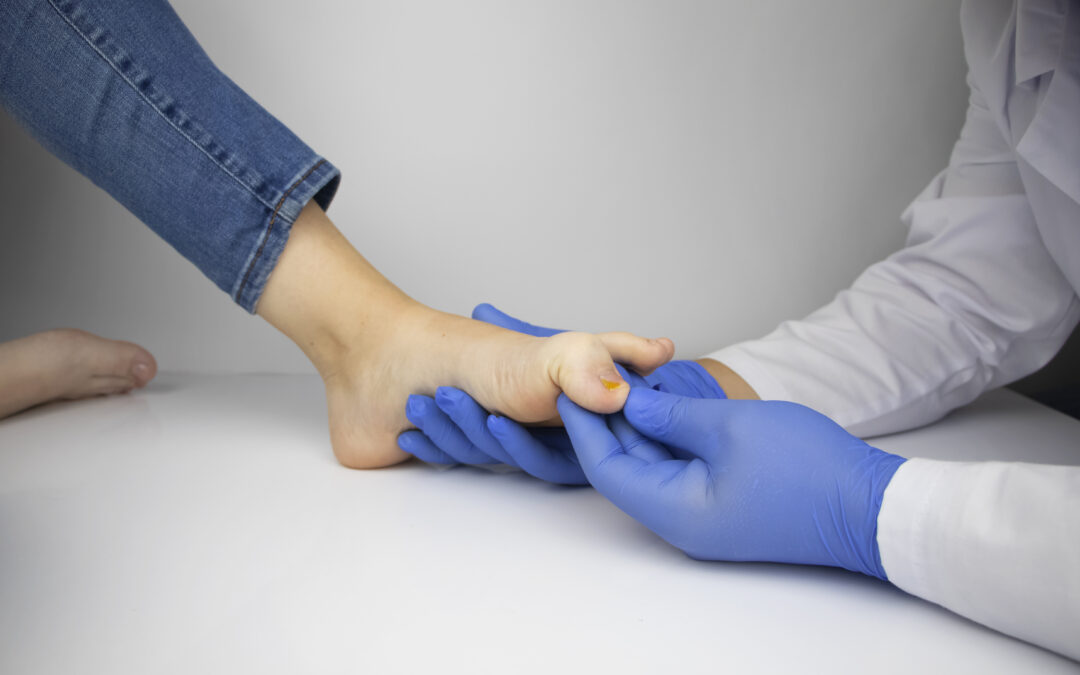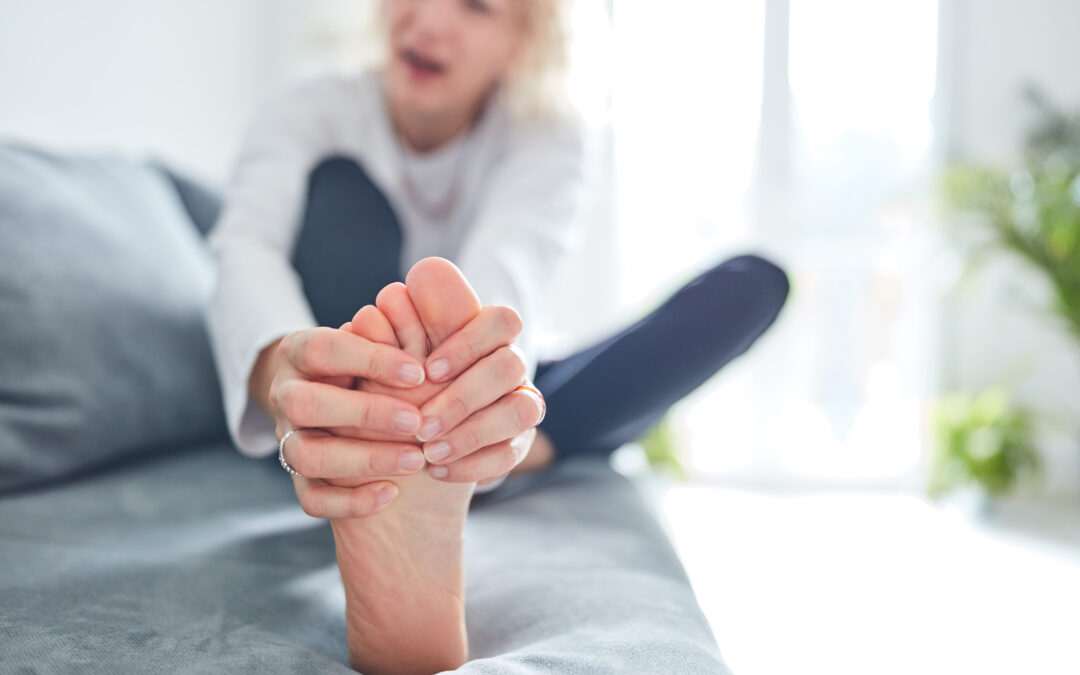What Is Plantar Fasciitis?
Plantar Fasciitis is inflammation of the thick ligament-like structure located on the bottom of your foot toward your heel. This fibrous band holds up the arch, supports body weight, and is known as the plantar fascia. When it “acts up,” it can feel like anything between a slight stiffness to a stabbing pain when standing or walking. For younger, active people, plantar fasciitis can occur when they are on their feet for too long or don’t support their feet adequately.
So, Why Do My Heels Hurt When I Get Up In The Morning?
Plantar fasciitis pain tends to act up in the morning. You have not used your feet throughout the night, so there is stiffness and pain when you first stand on the injured plantar fascia.
It can be hard to fix the pain associated with plantar fasciitis because we stand and walk each day and the feet seldom get enough rest to heal the injured plantar fascia. However, wearing the right shoes, warming up the area with a bit of exercise, and visiting a podiatrist can lessen the symptoms associated with plantar fasciitis.
What Causes Plantar Fasciitis?
Plantar Fasciitis does not have one singular cause but instead it has several influencing factors. You may be at risk of plantar fasciitis if:
- You spend a lot of time on your feet due to work or personal activities
- You participate in specific sports or aerobic activities that strain the plantar fascia, such as running, dance, and soccer.
- You have structural conditions with your feet, such as an abnormal gait or an arch that is too high or too low
- You wear poorly supportive shoes or you go barefoot
- You are overweight
How Do I Treat Plantar Fasciitis?
Plantar Fasciitis takes time to heal, but with targeted care and a podiatrist’s help, it will normally resolve. An approach to plantar fasciitis treatment typically looks like this:
- Your podiatrist will examine your foot and complete imaging of your foot to check bone structure and rule out heel spurs or other pathology.
- Your doctor may suggest taking ibuprofen or similar medication to ease pain and inflammation while you recover.
- Your doctor may recommend wearing supportive shoes or arch supports to correct your gait and support your arch and plantar fascia. Additionally, your podiatrist may recommend devices like a night splint to stretch out your calf and prevent morning stiffness.
- During the day, your podiatrist will often recommend exercises designed to stretch and strengthen your plantar fascia.
If your plantar fasciitis is unresponsive to these treatments, you may benefit from cortisone injections. If you fail to improve, surgery may be considered. Rest assured, these will be the last case scenario with plantar fasciitis.
Plantar Fasciitis isn’t always easy to deal with and often requires several weeks to several months to resolve. Thankfully, working with Podiatry Associates can help resolve your pain. If you’ve been suffering from stiff or painful heels, give our office a call. You can also make an online appointment request here.





